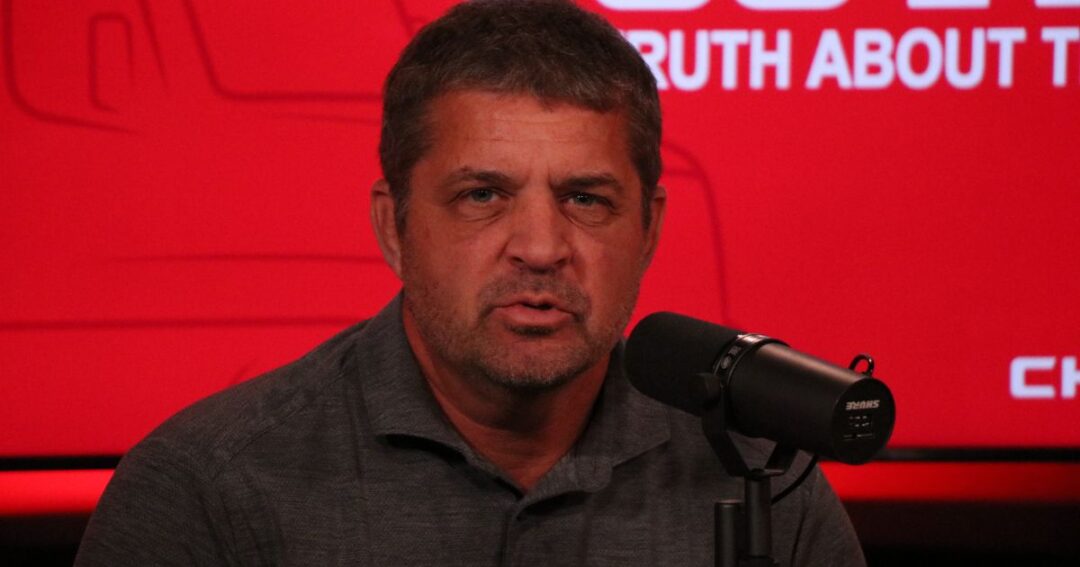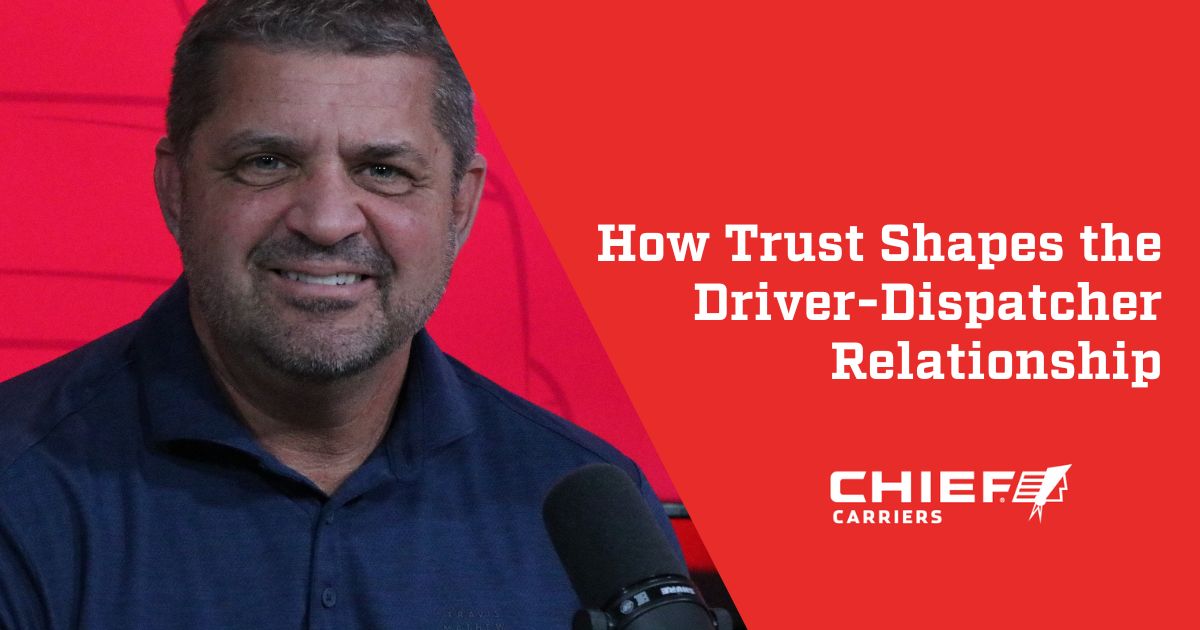Why Driver Trust Makes or Breaks Dispatch Success
The driver dispatcher trust relationship determines whether a professional driver stays with a carrier or leaves within their first month. In this Driven Too Far post, we’ll explore how a model driver’s experience revealed the true impact of broken trust between dispatch and drivers.
Even the most promising new drivers can be lost when dispatch fails to honor commitments or dismisses legitimate concerns. One misstep in handling home time or rescheduling deliveries can destroy weeks of careful recruiting and orientation.
The stakes are high when it comes to maintaining trust in trucking operations. What seems like a simple schedule adjustment to dispatch can signal a complete breakdown of trust to a driver who’s still evaluating their new carrier.
Professional drivers invest more than just their time when joining a new carrier – they place their livelihood and family life in the hands of their dispatcher.
When that trust gets damaged in the first few weeks, even the most experienced drivers begin looking for their next opportunity.
When Trust Breaks Down in Dispatch
As mentioned in the Driven Too Far podcast, Richard joined his new carrier with an outstanding driving record and professional attitude that impressed everyone during orientation. His dispatcher’s unexpected decision to modify Thanksgiving delivery plans without consultation shattered weeks of carefully built trust between them.
Every schedule change impacts a driver’s life beyond the road.
The ripple effects spread quickly as Richard began questioning every aspect of his new carrier relationship. What started as excitement about joining a reputable company transformed into doubt about his career choice within a matter of days.

The Impact of Poor Communication
When hours-of-service limitations and route delays threatened the original delivery schedule, the dispatcher viewed rescheduling to Friday as a simple solution. That single communication failure demonstrated a concerning disconnect between operations and driver needs.
Proper communication requires discussing changes with drivers before making decisions that affect their schedule.
The lack of consideration for Richard’s perspective created unnecessary tension and distrust. What could have been resolved through a quick discussion instead led to a complete breakdown in their working relationship.
Understanding Driver Expectations
Professional drivers evaluate every interaction during their first weeks with a new carrier.
Recruitment promises and orientation commitments create high expectations for how drivers will be treated. The way dispatch handles schedule changes and home time requests reveals the true nature of the carrier-driver relationship.
Clear communication and respect for personal time form the foundation of driver satisfaction. Unfortunately, when these basic expectations go unmet, drivers quickly begin planning their exit.
Holiday Planning and Home Time
The most sacred time for professional drivers is their scheduled time at home with family. Every holiday requires careful advance planning between dispatch and drivers to ensure smooth operations.
The success of these arrangements depends heavily on dispatch following through on commitments made during the planning phase.
Missing a holiday gathering or family celebration creates lasting damage to the driver’s trust in their carrier. When dispatch attempts to modify agreed-upon home time schedules, it signals a concerning disregard for work-life balance.

Red Flags in Early Relationships
Professional drivers spot warning signs in the first few weeks that indicate potential problems with their carrier. The way dispatch handles unexpected changes often reveals the true nature of the company culture.
Small incidents build into larger concerns when drivers feel their input isn’t valued. Operations teams that dismiss driver feedback or make unilateral decisions without consultation create an environment of distrust.
The relationship between a driver and their new carrier rarely recovers from early breaches of trust.
Watch for These Warning Signs
Early dispatch behavior often predicts long-term driver satisfaction.
- Changing schedules without driver consultation or consideration
- Dismissing concerns about home time and personal commitments
- Making promises during recruitment that don’t match reality
- Showing reluctance to document load agreements and schedule changes
- Pressuring drivers to accept unfavorable schedule adjustments
The relationship between a driver and their new carrier rarely recovers from early breaches of trust.
The Cost of Breaking Driver Trust
Early mistakes in the dispatch-driver relationship carry heavy financial consequences through increased turnover and recruiting costs. Despite investing significant resources in attracting qualified drivers, carriers often underestimate how quickly trust can erode.
Lost productivity and missed delivery opportunities compound the impact of driver departures.
When experienced drivers leave due to broken trust, they take valuable knowledge and customer relationships with them. The ripple effects extend far beyond just replacing the driver.

Setting Clear Scheduling Boundaries
Successful dispatch teams establish firm policies around home time requests and schedule changes. These boundaries protect both driver satisfaction and operational efficiency.
Written procedures provide clear guidelines for handling scheduling conflicts.
The most effective carriers train their dispatch teams to view schedule changes through the driver’s perspective. Their protocols emphasize early communication and collaborative problem-solving before making any adjustments that impact a driver’s personal time.
Learning from Dispatcher Mistakes
Companies that acknowledge dispatch errors create opportunities for meaningful improvement. Through open discussion of mistakes, carriers develop stronger systems to protect driver satisfaction.
Each dispatch error provides valuable insights for preventing future problems.
Well-run carriers turn operational failures into training opportunities for their teams. These organizations recognize that learning from mistakes helps build stronger relationships with their drivers.

Building Better Communication Systems
Effective communication requires more than just having the right policies in place. Professional dispatch teams need robust systems that prioritize driver feedback and promote transparent dialogue.
Regular check-ins during a driver’s first month help identify potential issues before they damage trust. Creating open channels for drivers to voice concerns allows dispatch to address problems proactively.
Clear protocols for schedule changes ensure dispatchers obtain driver input before modifying delivery appointments.
Essential Elements of Strong Communication Systems
Successful carriers implement specific tools and processes to maintain clear driver-dispatch dialogue.
- Daily check-ins with new drivers during their first 30 days
- Documented protocols for requesting and approving schedule changes
- Direct access to dispatch supervisors for urgent concerns
- Regular feedback sessions to discuss operational challenges
- Digital systems for tracking load agreements and commitments
Clear protocols for schedule changes ensure dispatchers obtain driver input before modifying delivery appointments.

Taking Driver Feedback Seriously
The strongest carriers create formal systems for collecting and acting on driver input. These organizations recognize that driver feedback provides crucial insights for operational improvement.
Front-line feedback helps identify potential problems before they impact driver retention. Without proper attention to driver concerns, small issues quickly escalate into significant problems.
Understanding driver perspectives leads to better operational decisions and stronger relationships between dispatch and drivers.
The Value of Professional Relationships
Maintaining strong professional bonds between dispatch and drivers requires consistent effort and mutual respect. The most successful carriers recognize that these relationships directly impact their bottom line.
Driver retention depends heavily on the quality of daily interactions between drivers and their dispatchers.
Experienced dispatchers understand that each interaction either strengthens or weakens their professional relationship with drivers. They recognize that maintaining driver trust requires constant attention to detail and follow-through on commitments.

Creating Long-Term Driver Success
Strong relationships between dispatch and drivers form the foundation for sustainable growth in trucking operations. Creating an environment of mutual respect and clear communication allows both parties to thrive.
Professional drivers stay with carriers that consistently demonstrate commitment to their success through actions, not just words.
Dispatch teams that focus on building trust through reliable communication and respect for driver needs create lasting partnerships that benefit everyone involved. These relationships lead to improved retention, operational efficiency, and long-term stability.
Building Trust That Lasts
Trust forms the foundation between dispatch and drivers, determining the strength and longevity of their working relationship. Every interaction shapes whether skilled drivers view their carrier as a long-term home or just another stepping stone.
Small moments define whether dispatch teams truly value their drivers’ dedication and sacrifice. The way operations handles schedule changes and home time requests reveals their authentic commitment to driver success.
Strong relationships require more than just good intentions – they demand consistent follow-through and respect for drivers’ time. Creating an environment where drivers feel genuinely valued leads directly to improved retention and operational excellence.
The most successful carriers recognize that trust develops slowly but can shatter in an instant. Their dispatch teams understand the weight of each decision that impacts a driver’s personal life.
Professional dispatch operations focus on building lasting partnerships through transparent communication and mutual respect. Their commitment to drivers extends beyond basic operational needs.

Start Your Career with Chief Carriers
Professional drivers choose Chief Carriers because we understand that trust forms the foundation of every successful dispatch relationship. Our commitment to transparent communication and respect for driver needs creates an environment where careers flourish.
At Chief Carriers, we pride ourselves on maintaining some of the lowest turnover rates in the industry.
Our dispatch teams receive extensive training in effective communication and collaborative problem-solving to protect both operational needs and driver satisfaction.
We believe in acknowledging our challenges openly and learning from every experience. This commitment to continuous improvement helps us maintain our position as an industry leader in driver retention and satisfaction.
Give your career the respect it deserves. Contact Chief Carriers or call today at (308) 389-7448 to discover how our driver-focused approach creates lasting partnerships built on mutual trust and professional respect.
Driven Too Far Podcast
Driven Too Far is a podcast that delivers the unvarnished truth about the trucking industry, hosted by Andrew Winkler, who understands the challenges drivers face.
From answering common questions for aspiring truck drivers to providing insider knowledge on pay, benefits, safety, and career advancement, this podcast offers valuable insights to help you balance your trucking career and family life.
The Driven Too Fast Podcast is produced by Two Brothers Creative.

